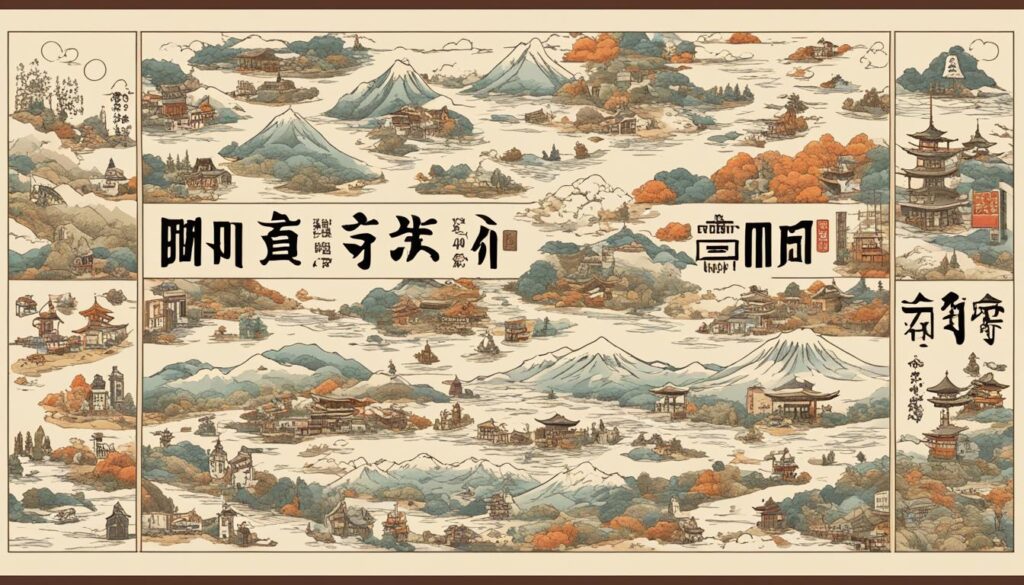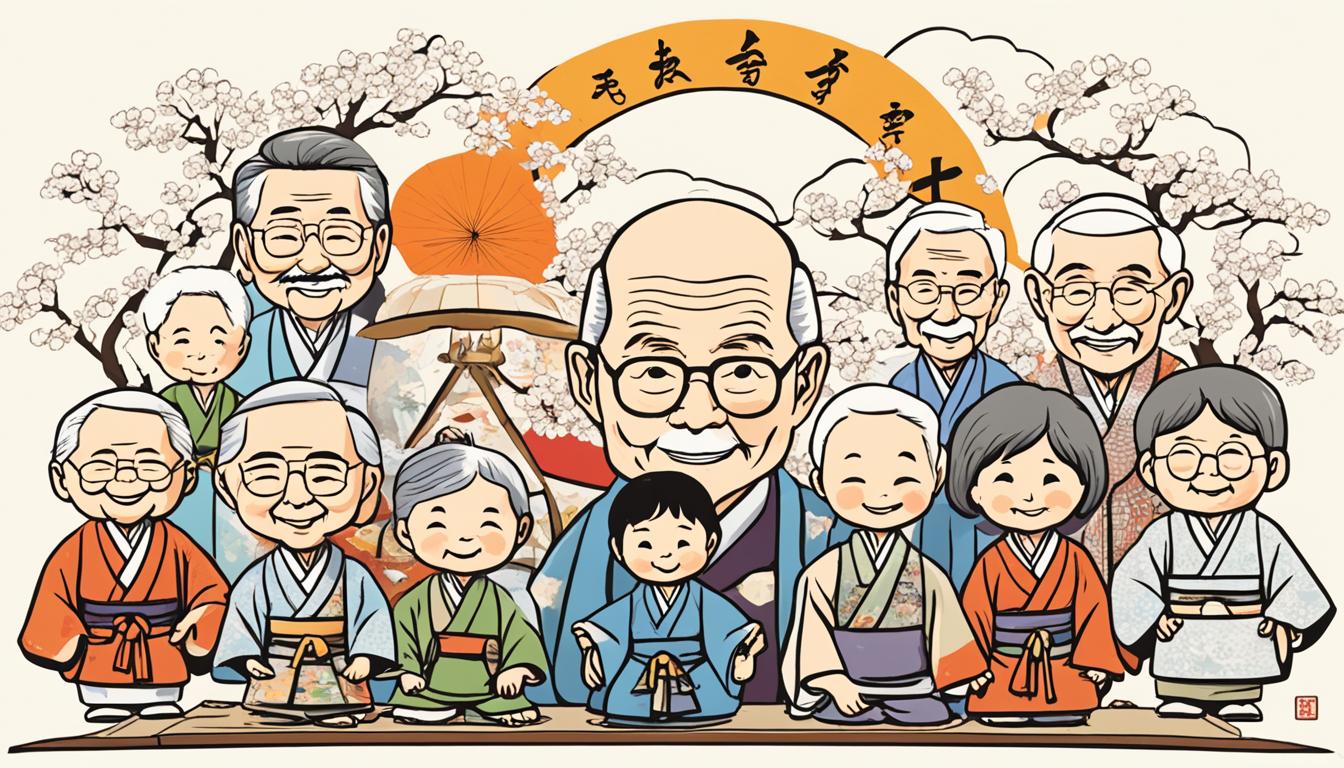In this article, you will learn how to say “brother” in Japanese, along with its meaning, grammar, pronunciation, and cultural usage. Whether you want to address your own sibling or understand Japanese family dynamics, knowing the right term for “brother” is essential. So let’s dive in and explore the world of brotherhood in the Japanese language.
The Word for Older Brother in Japanese
When it comes to addressing your older brother in Japanese, the word you need to know is ani. Whether you are referring to your own older brother or speaking to someone else’s older brother, this polite term is commonly used in both casual and formal conversations.
However, there are also variations of the word ani that can be used to address an older brother in a more affectionate way. Some popular variations include oniisan, niisan, and oniichan. These variations add a touch of warmth and familiarity when addressing your older brother.
For more formal situations or written correspondences, you can use the term oniisama. This formal and respectful term is suitable for very formal settings and shows respect towards your older brother.
The Word for Younger Brother in Japanese
In Japanese, the word for “younger brother” is otouto. This term is used when referring to one’s own younger brother or when speaking about someone else’s younger brother. It is the only word in Japanese specifically indicating a younger sibling. When addressing someone else’s younger brother, it is polite to use otoutosan. However, when speaking with close friends or family, otouto can be used more casually.
| Term | Pronunciation | Meaning |
|---|---|---|
| Otouto | oh-toh-toh | Younger Brother |
| Otoutosan | oh-toh-toh-san | Mr./Ms. Younger Brother |
Other Ways to Say Brother in Japanese
In addition to ani and otouto, there are several other ways to say “brother” in Japanese. These include:
| Variation | Translation | Usage |
|---|---|---|
| kyoudai | brothers/siblings | Used to refer to more than one brother; can be used in both casual and formal settings. |
| ani ue | honorable older brother | A formal and archaic term used to show respect when referring to an older brother. |
| aniki | brother-like figure | An informal and slang variation often used to refer to someone who is like a brother, such as a close friend or mentor. |
| giri no ani/otouto | brother-in-law/stepbrother | Polite terms used to refer to brothers-in-law or stepbrothers. |
These variations add nuance and context to the word “brother” in Japanese, allowing for more specific and diverse expressions in different situations.
Addressing Older and Younger Brothers in Japanese Culture
In Japanese culture, it is customary to address older siblings with respect, including older brothers. This reflects the importance of age and hierarchy within the family structure. When addressing an older brother in Japanese, the term “oniisan” is commonly used. This term conveys respect and is a formal way to address an older brother. It is also common for younger siblings to use this term when referring to their older brothers.
Addressing a younger brother in Japanese follows a similar pattern. The term “otouto” is used to refer to a younger brother. Like “oniisan,” “otouto” is a respectful term that maintains the hierarchical relationship within the family. It is polite and formal to use this term when addressing a younger brother. Using their given name may be considered too casual and may undermine the respect owed to the older sibling.
This cultural practice of using specific terms to address siblings underscores the significance of hierarchy and mutual respect within Japanese families. It reflects the value placed on age and the established roles within sibling relationships. By adhering to these cultural norms, individuals demonstrate their understanding and appreciation of the Japanese family dynamic.
Using Honorifics for Siblings in Japanese
In Japanese, honorifics can be attached to the words for “brother” to show additional respect or affection. The honorifics -sama, -san, and -chan can be added to ani and otouto to create variations like oniisama, ani-san, and otouto-chan. These honorifics are often used when addressing someone else’s sibling or in formal situations. Younger siblings may also use more affectionate variations like oniichan, nii-san, and otouto-kun when talking to their older brothers.
Using honorifics is a way to show respect and acknowledge the relationship between siblings in Japanese culture. It highlights the hierarchical dynamics and reinforces the importance of age and seniority.
Examples of Honorifics for Siblings in Japanese
| Term | Honorific | Meaning |
|---|---|---|
| ani | oniisama | Honorable older brother |
| ani | ani-san | Brother (polite) |
| otouto | otouto-chan | Little brother (affectionate) |
| ani | oniichan | Big brother (affectionate) |
The use of honorifics adds depth and nuance to the relationships between siblings in Japanese language and culture.
Historical and Regional Variations of Brother in Japanese

Over time, the words for “brother” in Japanese have evolved, leading to the emergence of regional variations. In ancient Japan, there was a more complex system for classifying siblings based on gender and age. However, this system eventually collapsed into the four basic terms: ani (older brother), otouto (younger brother), ane (older sister), and imouto (younger sister).
Despite the simplification of these terms, there are still historical and regional variations of “brother” in Japanese. Some examples include:
| Variation | Meaning | Region/Context |
|---|---|---|
| anigimi | Affectionate term for older brother | Western Japan |
| aniki | Slang term for brother or brother-like figure | Yakuza subculture |
| anego | Honorific term for older sister (used by men) | Yakuza subculture |
| niiya | Informal term for older brother | Osaka dialect |
These variations and slang usages of “brother” in specific regions or cultural contexts add richness and diversity to the Japanese language. They reflect the influence of history, local dialects, and subcultures on the vocabulary used to refer to siblings.
Conclusion
In conclusion, the Japanese language offers specific terms for addressing and referring to siblings based on age and gender. When it comes to “brother,” the words “ani” and “otouto” are commonly used, accompanied by various variations and honorifics that reflect cultural norms and show respect.
Understanding these terms and their appropriate usage is vital for navigating Japanese family dynamics and building relationships. Whether you are addressing your own brother or someone else’s, using the correct term and honorific can help establish a sense of respect and maintain the hierarchical structure within the family.
Moreover, Japanese siblings often use honorifics to add an extra layer of respect or affection when referring to each other. Terms like “-sama,” “-san,” and “-chan” can be attached to “ani” and “otouto” to create variations such as “oniisama” or “otouto-chan,” depending on the level of formality or familiarity.
By carefully navigating the specific terminology and honorifics associated with “brother” in Japanese, you can effectively communicate within Japanese society and showcase your understanding and respect for the language and culture.

